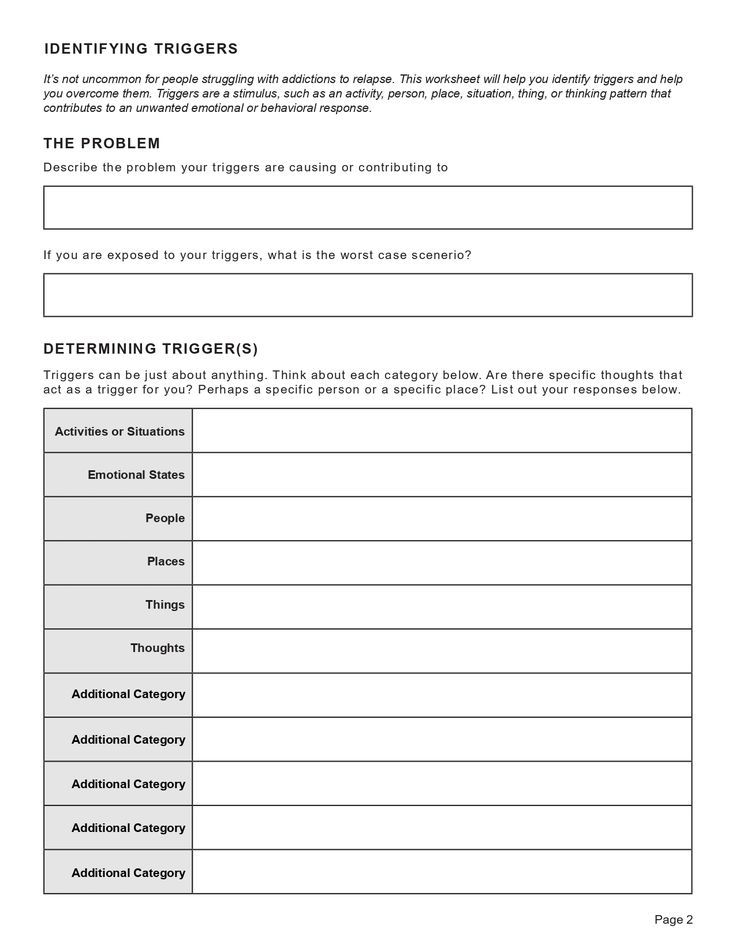Relapse prevention worksheets in PDF format are valuable tools for individuals who are in recovery from addiction or mental health issues. These worksheets help individuals identify triggers, develop coping strategies, and create a plan to prevent relapse. Whether used in therapy sessions or as part of a self-help program, these worksheets can be instrumental in maintaining long-term sobriety and mental wellness.
By providing a structured format for individuals to reflect on their thoughts, emotions, and behaviors, relapse prevention worksheets help increase self-awareness and insight. They also encourage individuals to develop healthy coping mechanisms and strategies to manage stress, cravings, and other triggers that may lead to relapse. With the guidance of a therapist or counselor, these worksheets can be customized to address specific challenges and goals in the recovery process.
One key component of relapse prevention worksheets is the identification of triggers. By recognizing people, places, emotions, and situations that may increase the risk of relapse, individuals can proactively plan how to avoid or cope with these triggers. This proactive approach empowers individuals to take control of their recovery journey and make informed decisions to protect their sobriety and mental health.
In addition to trigger identification, relapse prevention worksheets often include sections for developing coping strategies. These strategies may include healthy activities, relaxation techniques, communication skills, and ways to challenge negative thinking patterns. By practicing these coping strategies regularly, individuals can strengthen their resilience and ability to navigate challenging situations without turning to substances or harmful behaviors.
Another valuable aspect of relapse prevention worksheets is the creation of a relapse prevention plan. This plan outlines specific steps to take if warning signs of relapse appear, such as reaching out to a support system, attending a therapy session, or engaging in self-care activities. By having a detailed plan in place, individuals can respond quickly and effectively to prevent a full relapse and maintain their progress in recovery.
In conclusion, relapse prevention worksheets in PDF format offer a practical and accessible resource for individuals in recovery. By utilizing these worksheets to identify triggers, develop coping strategies, and create a relapse prevention plan, individuals can enhance their self-awareness, resilience, and commitment to long-term sobriety and mental wellness.
